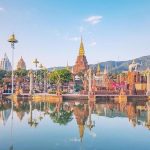Welcome to Yunnan, a land where cultures dance, stories are sung, and vibrant traditions come alive! Among the province’s many treasures, Dai Opera stands out as one of the most enchanting cultural gems. It’s an art form that’s as colorful and graceful as the flowers blooming in Yunnan’s lush landscapes. So, buckle up and get ready for a delightful journey through the history, artistry, and magic of Dai Opera—an essential part of the Yunnan culture and a true feast for the eyes and ears!
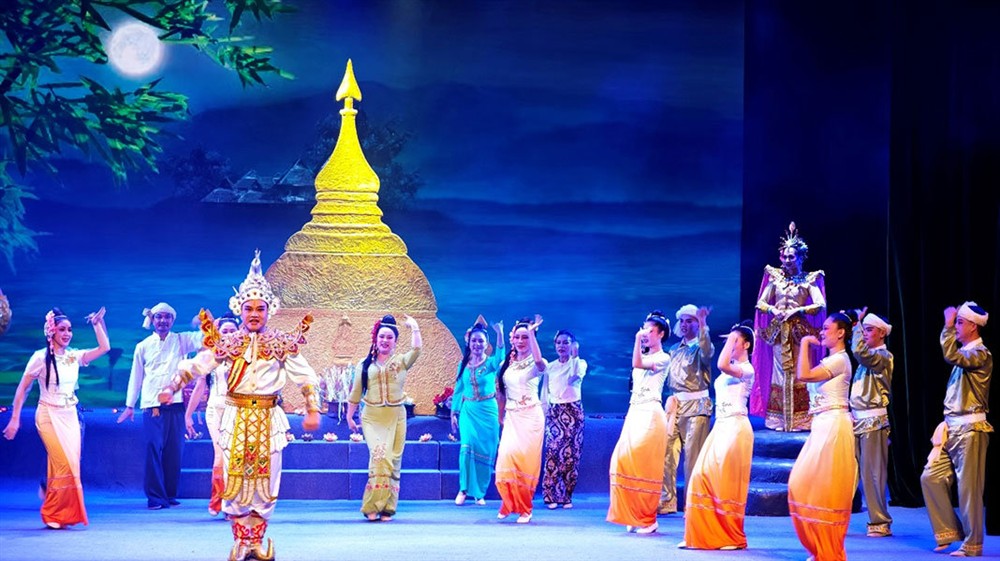
The Magical Origins and History of Dai Opera
Let’s start our journey by stepping back in time. Dai Opera, known as Dai Drama (傣剧), has its roots in the Dai people, an ethnic group with a long and fascinating history in the southern regions of China, particularly in the beautiful Xishuangbanna area. Originating during the Tang Dynasty (618–907 AD), this form of theatre was deeply influenced by Buddhist teachings and local folk traditions. Over time, it blossomed into the beloved art we know today—an extraordinary blend of music, dance, and theatre that has been passed down through generations.
In the early days, Dai Opera performances were held during religious festivals and ceremonies as a way of honoring the gods and offering prayers for good fortune. It wasn’t long before the captivating performances won the hearts of people across the region, turning it into a key cultural expression of the Dai ethnic group. Fast forward to today, and Dai Opera is recognized as a National Intangible Cultural Heritage of China!
The Artistic Magic of Dai Opera
What makes Dai Opera so special is its beautiful tapestry of music, dance, and drama, each part complementing the others to create a mesmerizing and deeply emotional experience. The enchanting music of Dai Opera features melodies that range from hauntingly slow to lively, rhythmic beats, played with traditional instruments like the xian (a stringed instrument), suona (a double-reed instrument), and drums. These instruments set the tone and guide the audience through the emotional highs and lows of the performance, making the music resonate deeply with the soul.
Dance is another essential element of Dai Opera, with performers’ graceful and expressive movements telling the story without words. Their fluid motions, whether slow and meditative or quick and dramatic, reflect the emotions of the music and the narrative, adding layers of meaning to each scene. The colorful costumes are a true feast for the eyes—intricate outfits in rich shades of red, gold, and blue, often adorned with beads, feathers, and decorations, reflecting the traditional attire of the Dai people. Paired with striking makeup that expresses the performers’ characters’ emotions, the costumes enhance the dramatic effect of the performance.
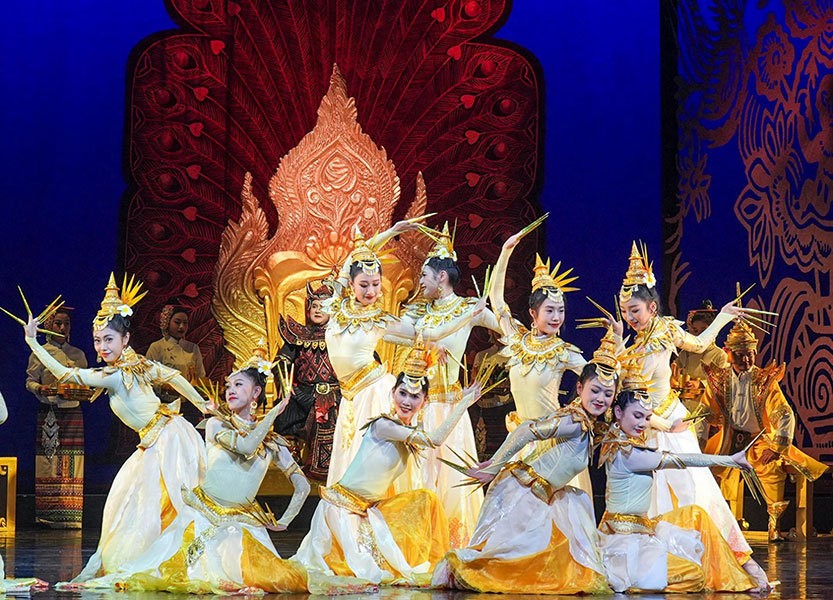
The poetic lyrics of Dai Opera bring the stories to life, often touching on themes of love, nature, spirituality, and life’s big questions. Through metaphors and symbolic language, the lyrics invite viewers to reflect on the beauty and mysteries of life, making the performance unforgettable. Whether sung softly or spoken with intensity, the words deepen the emotional impact, creating a truly captivating experience.
Famous Works: Dai Opera’s Timeless Stories
Some of Dai Opera’s most famous works are timeless pieces that continue to be cherished by audiences. These stories, filled with magic and meaning, explore deep themes like love, reincarnation, and spiritual journeys. Notable performances include “The Love Story of Lady Ayi and the White Elephant,” a tale of love, sacrifice, and the connection between humans and the natural world, reflecting the deep spiritual bond between people and their environment. Another standout is “The Legend of the Golden Lotus,” a classic that delves into the rich folklore of the Dai people, featuring mythical creatures and beautiful landscapes, all set to the haunting melodies of Dai music.
These performances are a beautiful reminder of how art can tell stories that transcend time and connect generations.
The Importance of Dai Opera Today
Dai Opera is much more than just entertainment—it’s a living, breathing part of the Dai people’s cultural identity. Its performances continue to play a central role in the spiritual and cultural life of the Dai communities, and they are an essential part of Yunnan’s rich heritage. But it doesn’t stop there! With the rise of cultural tourism, Dai Opera has reached audiences far and wide. People from all over the world visit Yunnan to witness this extraordinary art form and experience the beauty of the region.
By keeping the traditions of Dai Opera alive, the Dai people not only honor their past but also contribute to the preservation of a cultural legacy that brings joy and wisdom to people from all walks of life.
Must-Visit Dai Cultural Sites in Yunnan
So, where can you experience the magic of Dai Opera and immerse yourself in the world of the Dai people? Yunnan is full of fascinating places where you can discover this art form and much more. Here are a few places you absolutely must visit!
Xishuangbanna
The heartland of the Dai people, Xishuangbanna is known for its lush rainforests, beautiful temples, and vibrant cultural celebrations. Don’t miss the chance to see Dai Opera performed in its original home, and be sure to visit the Xishuangbanna Tropical Botanical Garden to experience the region’s natural beauty.
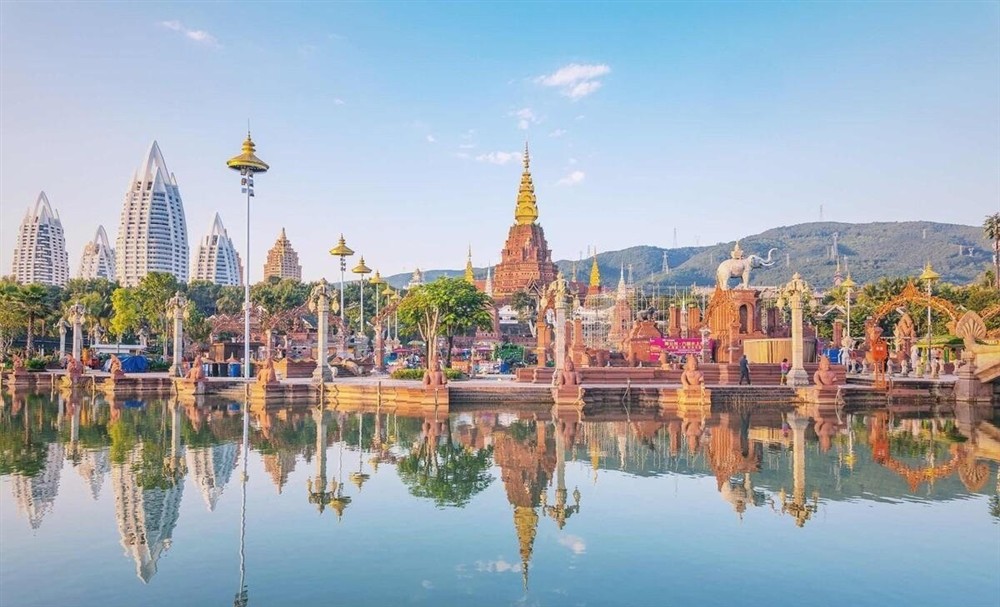
Jinghong
The capital of Xishuangbanna, Jinghong is a charming city with many temples, markets, and traditional performances. Be sure to check out the Xishuangbanna Culture Park, where you can explore the diverse cultural traditions of the Dai people, including their famous opera.
Manfeilong Pagoda
A beautiful example of Dai architecture and spirituality, this pagoda in Xishuangbanna is a must-see for anyone interested in Dai culture. It’s a peaceful spot where you can take in the views and reflect on the region’s history.
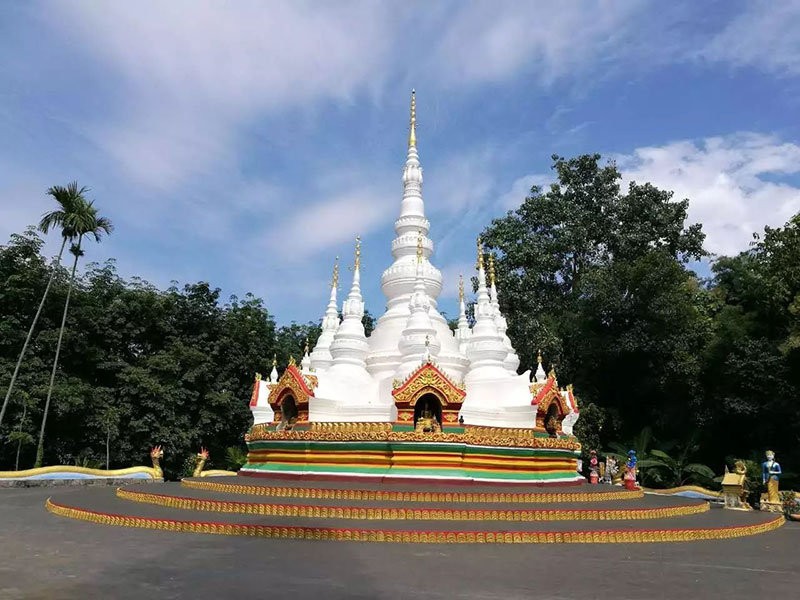
Dai Minority Villages
Take a day trip to one of the many traditional Dai villages in the region, where you can explore local culture, try delicious Dai food, and, if you’re lucky, catch a live performance of Dai Opera! These villages offer an authentic experience of Dai life and traditions.
A Journey into the Heart of Yunnan
Whether you’re a fan of cultural performances or simply looking to explore the vibrant traditions of Yunnan, Dai Opera is an experience you won’t forget. This art form is a beautiful expression of love, history, and the deep connection between the Dai people and their natural environment. By visiting Yunnan and experiencing Dai Opera, you not only get a chance to enjoy an incredible performance but also gain a deeper understanding of the region’s rich cultural heritage.
From the graceful movements of the dancers to the haunting melodies that fill the air, Dai Opera is an unforgettable journey into the soul of the Dai culture. So pack your bags and get ready for an adventure in Yunnan, where art, nature, and spirituality come together in the most enchanting way!
Contact us today to craft your dream China adventure!

